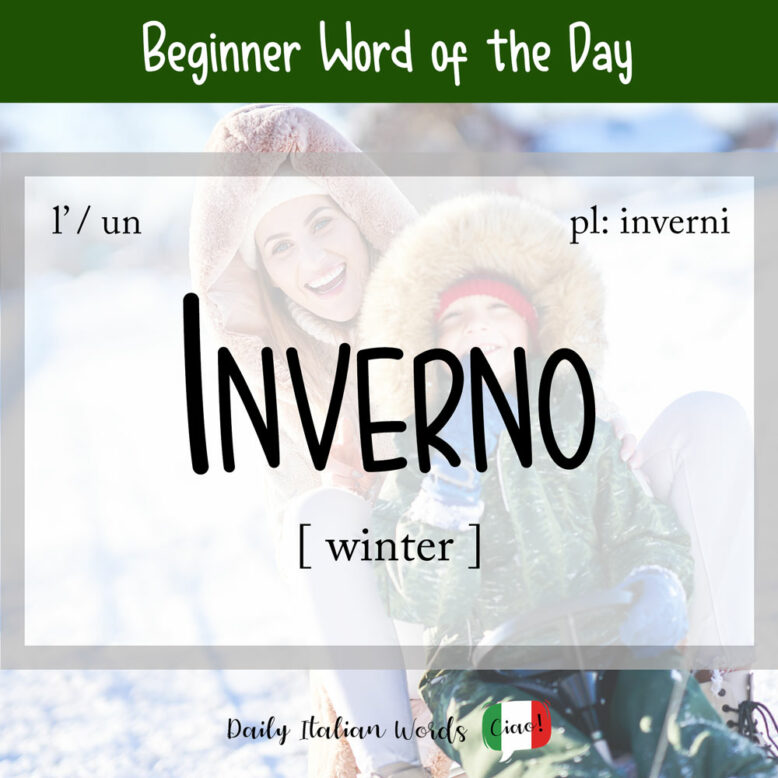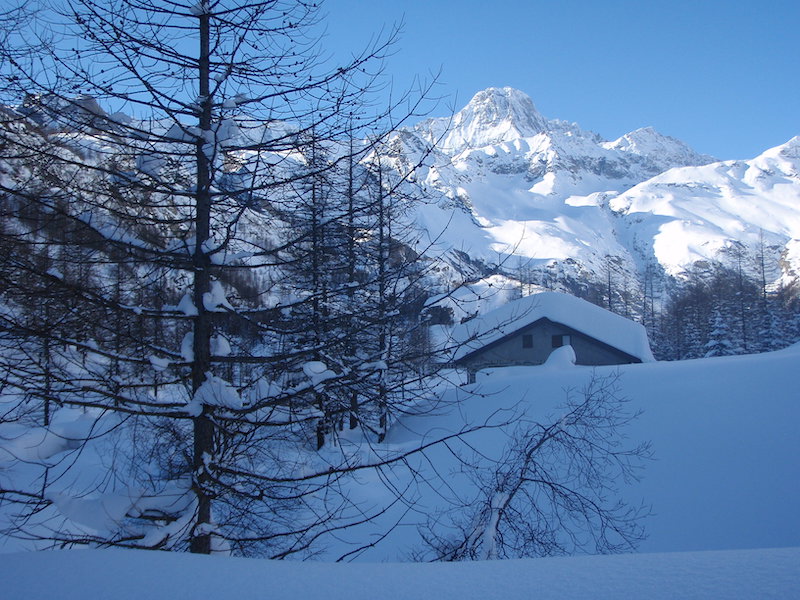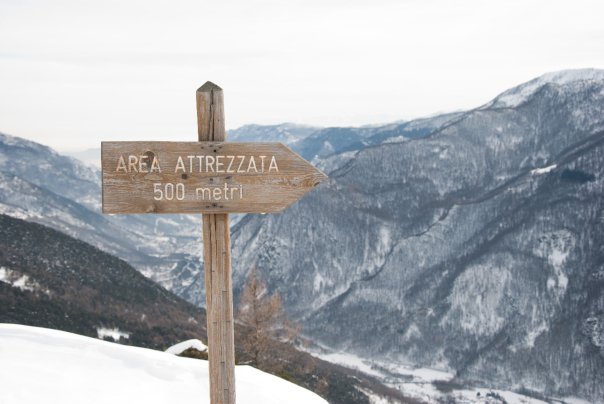Winter – or inverno (masculine, plural: inverni) in Italian – is the coldest season of the year due to the Earth‘s axis being oriented away from the sun. It occurs between autumn (autunno) and spring (primavera) each year.

When it is winter in the Northern Hemisphere (emisfero nord), it is summer in the Southern Hemisphere (emisfero sud) and vice versa.
Normalmente, che tempo fa qui durante l’inverno?
What’s the weather usually like here in the winter?

There are three ways to say winter’s day in Italian, all of which are more or less interchangeable:
- giorno invernale
- giornata invernale
- giornata d’inverno
The expression giorno d’inverno tends to translate as day of winter (as in the first or last day of winter).
Il 20 marzo è l’ultimo giorno d’inverno.
March 20th is the last day of winter.
To describe something as wintery, winter-like or as being for winter, you would use the adjective invernale.
Questa giacca invernale mi tiene così caldo!
This winter jacket keeps me so warm!

Below are a few useful Italian winter words that will come in handy when describing this time of year:
- cappello invernale = winter hat
- giacca invernale = winter coat
- paesaggio invernale = winter landscape
- sport invernale = winter sport
- vacanza invernale = winter vacation
- stagione/periodo invernale = wintertime
- inverno inoltrato = the depths of winter / midwinter
- solstizio d’inverno = winter solstice
Italian Quotes & Proverbs about Winter
All’inverno piovoso, l’estate abbondante.
English translation: A rainy winter brings an abundant summer.
Chi d’estate non lavora, nell’inverno perde la coda.
English translation: Those who do not work in the summer lose their tails in the winter.
Quando canta il merlo siamo fuori dall’inverno.
English translation: When the blackbird sings we are out of winter.
D’estate ogni buco fa latte, d’inverno nemmen le buone vacche.
English translation: In summer every hole produces milk, in winter not even the good cows do.
‘Inverno’ by Fabrizio de Andrè
Inverno is a heavily orchestrated rock ballad featured on Fabrizio de Andrè’s second album Tutti Morimmo a Stento. Artistically active for 40 years, he is considered one of the great Italian poets due to the quality of his lyrics.
Sale la nebbia sui prati bianchi
Come un cipresso nei camposanti
Un campanile che non sembra vero
Segna il confine fra la terra e il cielo
Ma tu che vai, ma tu rimani
Vedrai la neve se ne andrà domani
Rifioriranno le gioie passate
Col vento caldo di un’altra estate
Anche la luce sembra morire
Nell’ombra incerta di un divenire
Dove anche l’alba diventa sera
E i volti sembrano teschi di cera
Ma tu che vai, ma tu rimani
Anche la neve morirà domani
L’amore ancora ci passerà vicino
Nella stagione del biancospino
La terra stanca sotto la neve
Dorme il silenzio di un sonno greve
L’inverno raccoglie la sua fatica
Di mille secoli, da un’alba antica
Ma tu che stai, perché rimani?
Un altro inverno tornerà domani
Cadrà altra neve a consolare i campi
Cadrà altra neve sui camposanti
The fog rises on the white meadows
Like a cypress in the graveyards
A bell tower that doesn’t seem true
Marks the boundary between earth and sky
But you go, but you stay
You will see the snow fade away tomorrow
Past joys will flourish
With the warm wind of another summer
Even the light seems to die
In the uncertain shadow of continuous change
Where even dawn becomes evening
And the faces look like wax skulls
But you go, but you stay
Even the snow will die tomorrow
Love will still pass us by
In the hawthorn season
The tired earth under the snow
The silence of a heavy sleep slumbers
Winter gathers its fatigue
A thousand centuries, from an ancient dawn
But you stay, why do you stay?
Another winter will come back tomorrow
More snow will fall to console the fields
More snow will fall on the cemetery
Heather Broster is a graduate with honours in linguistics from the University of Western Ontario. She is an aspiring polyglot, proficient in English and Italian, as well as Japanese, Welsh, and French to varying degrees of fluency. Originally from Toronto, Heather has resided in various countries, notably Italy for a period of six years. Her primary focus lies in the fields of language acquisition, education, and bilingual instruction.


